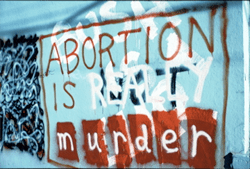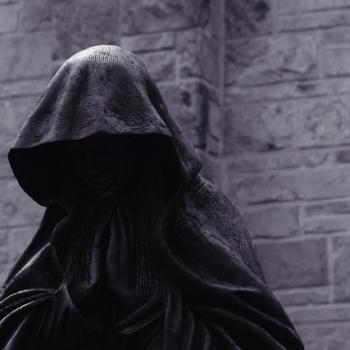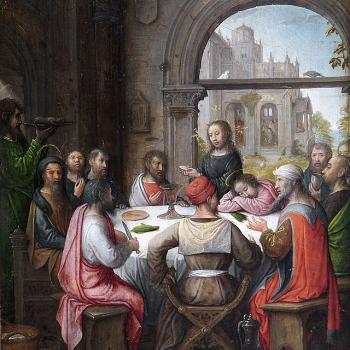By Brandon Bayne - June 9, 2009
Photo used under a Creative Commons license from Flickr user jcather
 Most pro-life organizations thoroughly rejected the Sunday morning murder in Wichita, Kansas of Dr. George Tiller in the foyer of his own church. Wichita-based Operation Rescue, for instance, quickly distanced itself from the accused killer, insisting that although Scott Roeder may have posted on their blogs, he was not a member or associate of their movement. Its President, Tony Newman, said in a USA Today op-ed that his organization employs only legal, non-violent methods and stressed that they "abhor vigilantism."
Most pro-life organizations thoroughly rejected the Sunday morning murder in Wichita, Kansas of Dr. George Tiller in the foyer of his own church. Wichita-based Operation Rescue, for instance, quickly distanced itself from the accused killer, insisting that although Scott Roeder may have posted on their blogs, he was not a member or associate of their movement. Its President, Tony Newman, said in a USA Today op-ed that his organization employs only legal, non-violent methods and stressed that they "abhor vigilantism."
While Operation Rescue acted quickly to distance itself from Roeder, it has not been in any hurry to take down sensational banner ads about "The Latest Botched Abortion at Tiller's Late-Term Abortion Mill," links to undercover "stings" of Tiller, or advertisements for a book titled Their Blood Cries Out placed right beside the very editorial that expresses shock over the murder.
Their Blood Cries Out is a potent phrase, with a long, evocative place in Christian history. The reference alludes to Revelation 6:9-11, where the writer envisions an altar beneath which the souls of those slain for Jesus cry out before Him. They plead, "How long, O Lord, until you avenge our blood?" The passage has often been understood to refer to martyrs, innocents who have died for the sake of their Christian faith. Some contemporary books make this link explicit, using the same title as the Operation Rescue pro-life volume, Their Blood Cries Out, to bring tales of historic and modern Christian persecution to the eyes of otherwise comfortable American evangelicals. What do Christians do when they are told that innocents are dying? To what use will we put these tales of suffering?
One historic response has been violent confrontation and war. After all, do the innocent not cry out for vengeance? And, from medieval passion plays to rally cries like "Remember the Alamo!" memories of sacrificial victims too often have led to indiscriminate scapegoating and brutal reprisals. From this perspective, persecution justifies homicide. Dave Leach, the editor of a publication called Prayer and Action News, has said that while he "grieved" for Tiller he also "rejoiced for the babies who will not be killed." Leach expressed gratitude to the man who "gave up everything to save thousands from a violent death." For Leach, the killer is the martyr. The irony is that these responses usually lead to more deaths, and new martyrs for rival communities. Sacrifices grow, victims proliferate, and all the while the violence spins out of control because the blood keeps crying out.
We witness those cycles in Wichita. Despite Obama's recent calls for compromise and cooperation on abortion, Tiller's death has already begun to inscribe lines of opposition. On the one hand, abortion rights proponents are honoring Tiller as a sacrificial hero and courageous pioneer who died for the freedom of others. On the other hand, extremists like Leach are hailing the killer as having made the ultimate sacrifice and saved thousands of future lives. These words, of course, only fuel a conversation already burning with accounts of innocence and death.
What is lost in the inexorable push to memorialize contending heroes, count a communal sacrifice, and claim a blameless cause? It is the response to the blood cry in the Revelation itself. When asked for justice and vengeance, the voice tells the innocent to wait a little longer. The message is not punishment, but patience, a command to wait upon the Lord and reserve judgment and justice to Him. Does this mean that we should never act to protect the suffering? Of course not, but it reminds us that our perspective on who is guilty and who is innocent may not be total or unbiased. It tells us to pause, to wait. If we should happen to take this advice, I think we would find that everybody involved in the days and years leading up to last Sunday has some blood on their hands.
1/1/2000 5:00:00 AM




